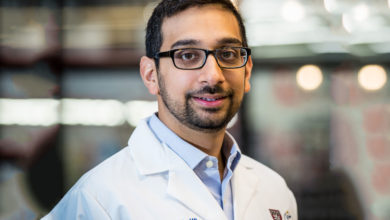Transitioning from medical school to residency can be daunting because that means going from theory to practice. It means more responsibility. Nevertheless, knowing what to expect can help ease the fear and allow you to better prepare.
Leaving medical school for residency means transitioning from theory to practice, and it can be terrifying. Up till now, everything you learned was academic. You were ultimately responsible for no one. When you enter residency, patients count on you to take care of them. Their health is in your hands. It’s a lot of responsibility.
In medical school you were closely supervised. You were expected to know the basics about diseases, treatments, and potential complications. You took notes, observed procedures and participated in some, and were grilled by attendings. Then you graduate, and suddenly, you’re a doctor.
As a resident, you’re not just demonstrating your knowledge, you’re writing orders that may have life or death consequences. It can be pretty overwhelming at first. As you gain experience, you’ll also gain confidence, but don’t expect the stress to lessen. There is a lot of pressure on residents…and a lot of pressure on anyone in the medical profession. When a bad decision might be fatal, stress is a constant companion. Despite seemingly insurmountable challenges for first year interns, this is the year when you grow and thrive the most.
||Read: Nailing Your Residency Program Interview||
The first day will be exciting. You and a group of other interns will report to the hospital and go through a week of orientation where you’ll get an ID badge with M.D. after your name, and endlessly go over the details of the work, the rules, expectations, and hospital policies. You’ll be lectured about everything from safely handling needles to the importance of sleep. You’ll learn to find your way around and get to know the people you’ll be spending the next few years working alongside.
||Read: Why Medicine?||
The Daily Life of an Intern
After orientation, you’re assigned to a team and you start your career as a doctor. On a typical day, you’ll start bright and early at 7AM, visiting your patients before rounds to check their charts and see how they’re doing. That will be followed by rounds with the medical team. Your team will be led by an attending or teaching physician and will include an supervising resident and several other interns.
During rounds, your team will visit each patient in turn and discuss treatment and how the patient is progressing. Different treatments and diagnostic tests are discussed, and the patient is asked to provide feedback on his condition. After rounds, you’ll concentrate on patient care, perform procedures and tests, talk to nurses and the patient’s doctor, and generally attend to the patient’s needs. Later in the day, you’ll grab lunch, attend a lecture or conference, and meet incoming patients.
When new patients come in, you’ll be expected to record the patient’s history and perform a physical exam. Obtaining a detailed history is vitally important. You’ll write up the admitting orders and instructions for patient care: tests, medications, and other recommendations based on the patient’s symptoms. You have to know what medications to recommend, in what dose, and about medicine and supplement interactions.
At the end of your shift, you sign out and the team that’s on call takes over. Signing out includes updating your replacements with pertinent information about each patient.
||Read: Should I Be A Doctor?||
On Call
When you’re on call, it’s your responsibility to see to the patients overnight. Each team takes turns on call, so you’ll be on call every few nights, depending on your specialty and how many teams are working in your hospital. This often results in shifts that last 30 – 36 hours. While this is a time-honored tradition in medicine, it’s controversial. Proponents say this kind of trial by fire prepares doctors for everything, exposes them to a huge variety of health conditions and situations, and results in better prepared physicians. Opponents say it’s a dangerous practice that compromises the care of patients and results in medical mistakes. The medical profession simply accepts it as part of the job.
Expect Exhaustion
Tired is just a fact of life for a medical resident. You’ll work at least 80 hours a week and grab naps whenever and wherever you can. Your free time, when you get free time, will mostly be spent snoozing…when you’re not studying.
Fortunately, you have four years of med school to partially prepare you for the demands of a medical residency program. Use that time wisely. If your school offers subinternship rotations as electives, it will help lessen the shock of transitioning to a residency program. Hands-on experience as an intern under close supervision will boost our confidence and lower your stress when you become a resident. Lower stress will help you adjust and get better sleep.
||Read: 10 Questions For A Doctor: Tiffany Kim, MD||
Following Procedure
Perhaps the most important thing you’ll learn is routine. By making sure you perform all the steps, you won’t suffer from overconfidence that leads to mistakes. The hospital will have clearly defined procedures, checklists, systems, and tools to help you make the right decisions.
Sharing Knowledge
You’re going to get very familiar with the concept of “see one, do one, teach one.” You’ll watch procedures the first time, do it yourself then second time, and teach someone else to do it the third time. In a teaching environment, you’re often both student and teacher. Residents help each other. You can’t survive without your team…another important thing to learn.
It won’t be easy, but it will be exciting. You survived med school! If you made that cut, you can survive anything. You’ll be treating real patients, having input into treatment options, and developing relationships with patients and your medical team.
Sherry Gray is a freelance writer in Orlando, Florida. Science, medicine, and politics are her favorite topics to write about and obsess over.



